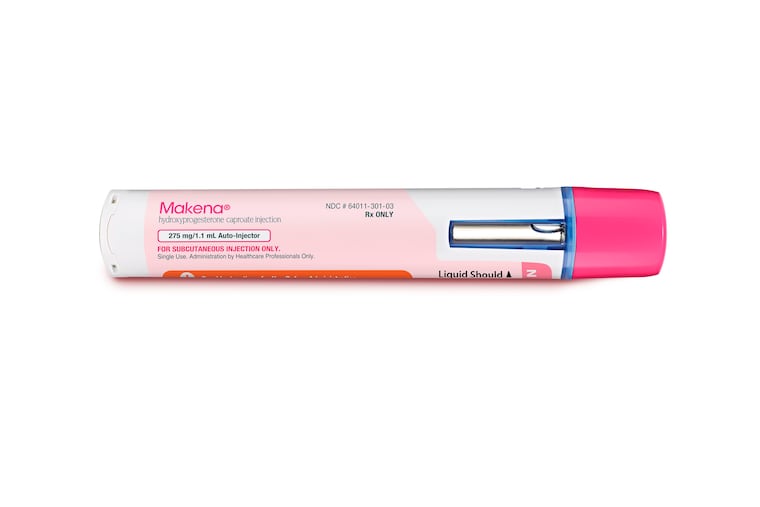FDA panel advises taking preterm birth drug off the market
A final decision on the drug, made by Covis Pharma, is now up to agency regulators.

An FDA advisory panel voted 14-1 on Wednesday to recommend that the agency withdraw its approval of the drug Makena, saying the treatment does not appear to reduce the risk of preterm birth.
A final decision is now up to agency regulators, who are widely expected to agree — having proposed to reverse the agency’s approval of the drug two years ago.
That proposal was challenged by drug maker Covis Pharma, which is based in Luxembourg and has U.S. offices in King of Prussia. The FDA approved the drug for sale in 2011 after an accelerated review process, given that there were few effective treatments for preventing premature birth.
Yet in a large, follow-up study, women who took the drug were just as likely to deliver their babies early as women who were given a placebo. That study also found that the drug had no health benefit for the baby.
» READ MORE: The FDA says this drug doesn't work. The drug maker has pushed back, enlisting support of Black women.
In a recent report, an oversight office at the U.S. Department of Health and Human Services found flaws with the accelerated process through which Makena and certain other drugs are approved.
In dozens of cases, drug makers failed to complete follow-up trials by the agreed target date, selling billions of dollars’ worth of medicines in the meantime, the analysis found. In the case of Makena, report authors estimated that Medicare and Medicaid spent nearly $700 million on the drug from 2018 to 2021.
Among the panel members who voted no in Wednesday’s hearing was biostatistician Susan S. Ellenberg, a professor emerita at the University of Pennsylvania’s Perelman School of Medicine.
She and other committee members urged further study of the drug, saying it may yet prove to be beneficial for some preterm babies.
“Ideally, such a study would be able to identify the effect on neonatal morbidity and mortality, which I think is the ultimate goal of preventing preterm pregnancy,” she said. “That is really what we are interested in here.”
Watch the FDA advisory panel’s discussion here: